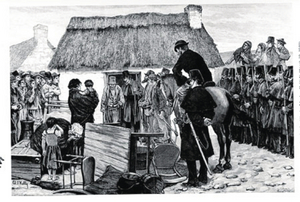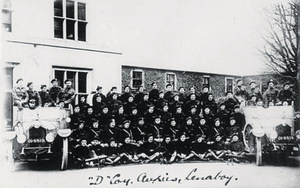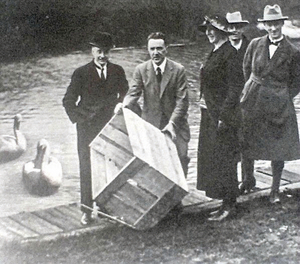Search Results for 'British government'
48 results found.
Leading academic to give interfaith lecture in Galway

The challenges that both extremism and secular modernity pose to people of faith, and the challenges of living in a multi-faith society, will be explored in a public lecture, to be given by a leading British academic in Galway.
Baboró conference to examine how we nurture creativity in the classroom
Baboró International Arts Festival for Children is to hold a ground-breaking conference entitled Opening the Door to Creative Teaching and Learning. The conference will take place in NUI Galway on Thursday May 28 and is aimed at anyone interested in improving levels of confidence, creative and critical thinking and problem solving in primary school children, and in finding new ways of exploring the curriculum using creativity and active learning.
How artists changed Britain’s perception of the Great Hunger

Although the Great Irish Famine, which devastated Ireland in the 1840s and early 1850s, happened at a time when photography was only in its experimental stage, we still have vivid images of the appalling suffering that the vast majority of the people endured. A suffering that was heightened by systematic neglect by government, the total absence of a comprehensive humanitarian plan of relief, and the law of the land which only supported the rights of landlords.*
We need to follow Britain’s pothole fix
Just before Christmas Britain’s Transport secretary announced a massive £6bn fund to help tackle potholes and improve local roads over the next six years. This is the kind of planning that we should be seeing here as our economy recovers, writes Padraic Deane.
Galway small and medium sized business at risk of being lost to Britain

Unless the Government starts offering more attractive incentives to small and medium-sized enterprises in Galway, and elsewhere throughout the State, such SMEs are at risk of leaving Ireland to set up in Britain.
The Auxiliaries in Galway

As the guerrilla war attacks by the Irish Volunteers on the RIC began to escalate in 1919, the British government recruited World War I veterans as a complementary force to the RIC. It advertised for men willing “to face a tough and dangerous task”. These were the Black and Tans. A further campaign was launched to recruit former army officers who were specifically formed into counter insurgency units known as the Auxiliaries or ‘The Auxies’. They wore distinctive ‘Tam O’Shanter’ caps. One of these units, D Company, was stationed in Lenaboy Castle and in ‘The Retreat’ in Salthill.
James Hack Tuke and his plan to assist emigration from west of Ireland
The agricultural crisis of 1879, and growing civic unrest, prompted the Society of Friends in England to send James Hack Tuke to the west to inquire into conditions and to distribute relief. Tuke, the son of a well-to-do tea and coffee merchant family in York, England, published his observations in Irish Distress and its Remedies: A visit to Donegal and Connaught in the spring of 1880. In clear-cut language he highlighted the widespread distress and destitution at a time when the British government questioned the extent of the crisis.
Colourful Gogarty escapes death by a whisker

A precocious and cleverly witty Trinity student in a yellow waistcoat, Oliver St John Gogarty, was to become a close friend of Sinn Féin's founder Arthur Griffith. At its first historic meeting, November 28 1905, Gogarty proclaimed against the 'tyranny of the British government', in the grand manner of a Cicero addressing the Roman senate. But so moving and compelling were his words that when Griffith reported the meeting in his newspaper The United Irishman, Gogarty's speech was the only one he quoted. And he did so at length.
Whiplash scourge costing British drivers
The British are in the process of learning a lesson that we learnt the hard way a decade ago. Their system for motor insurance is riddled with fraud and exaggeration. Levels of compensation are far too high and claims too frequent.
Whiplash scourge costing British drivers
The British are in the process of learning a lesson that we learnt the hard way a decade ago. Their system for motor insurance is riddled with fraud and exaggeration. Levels of compensation are far too high and claims too frequent.

